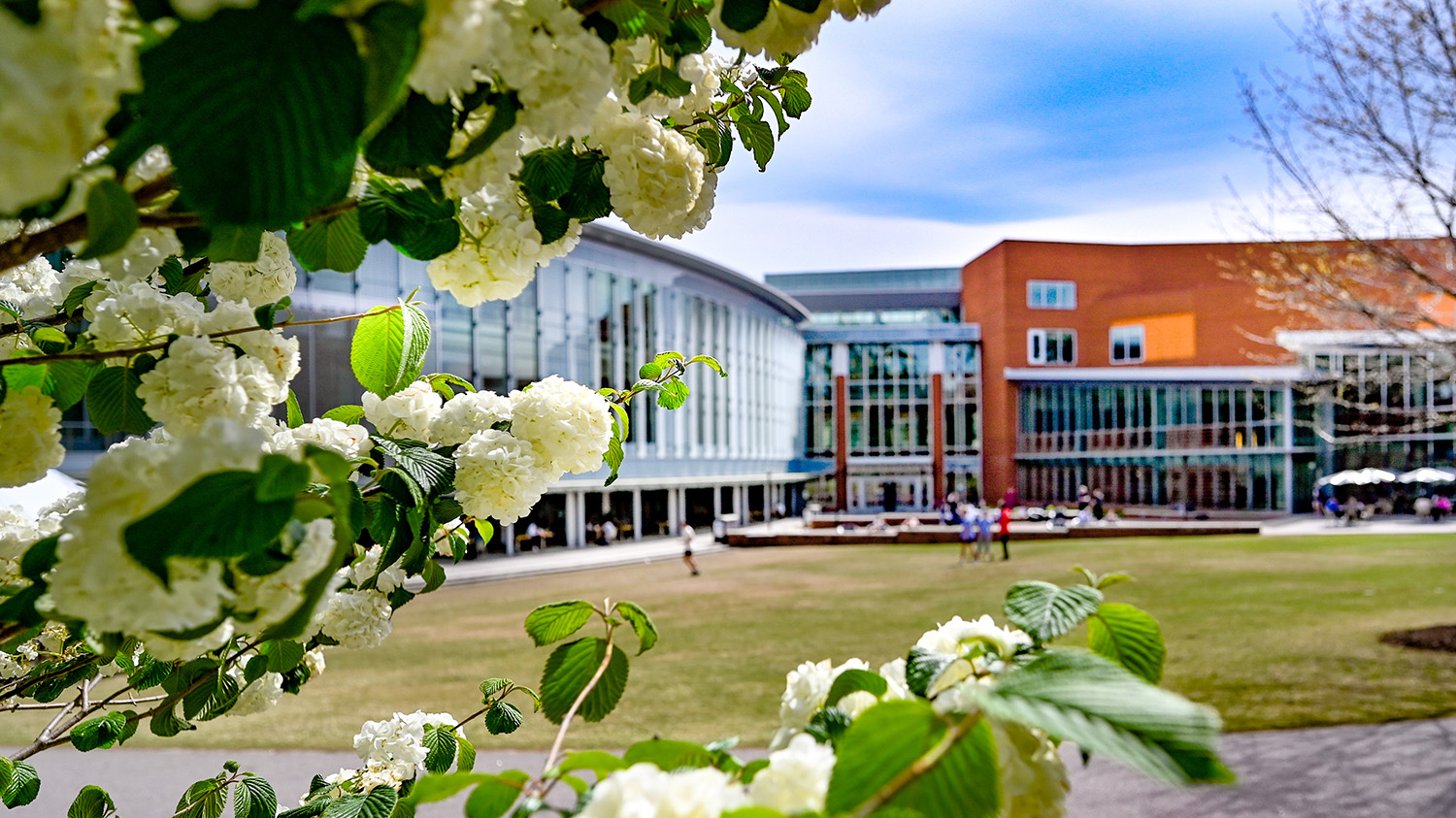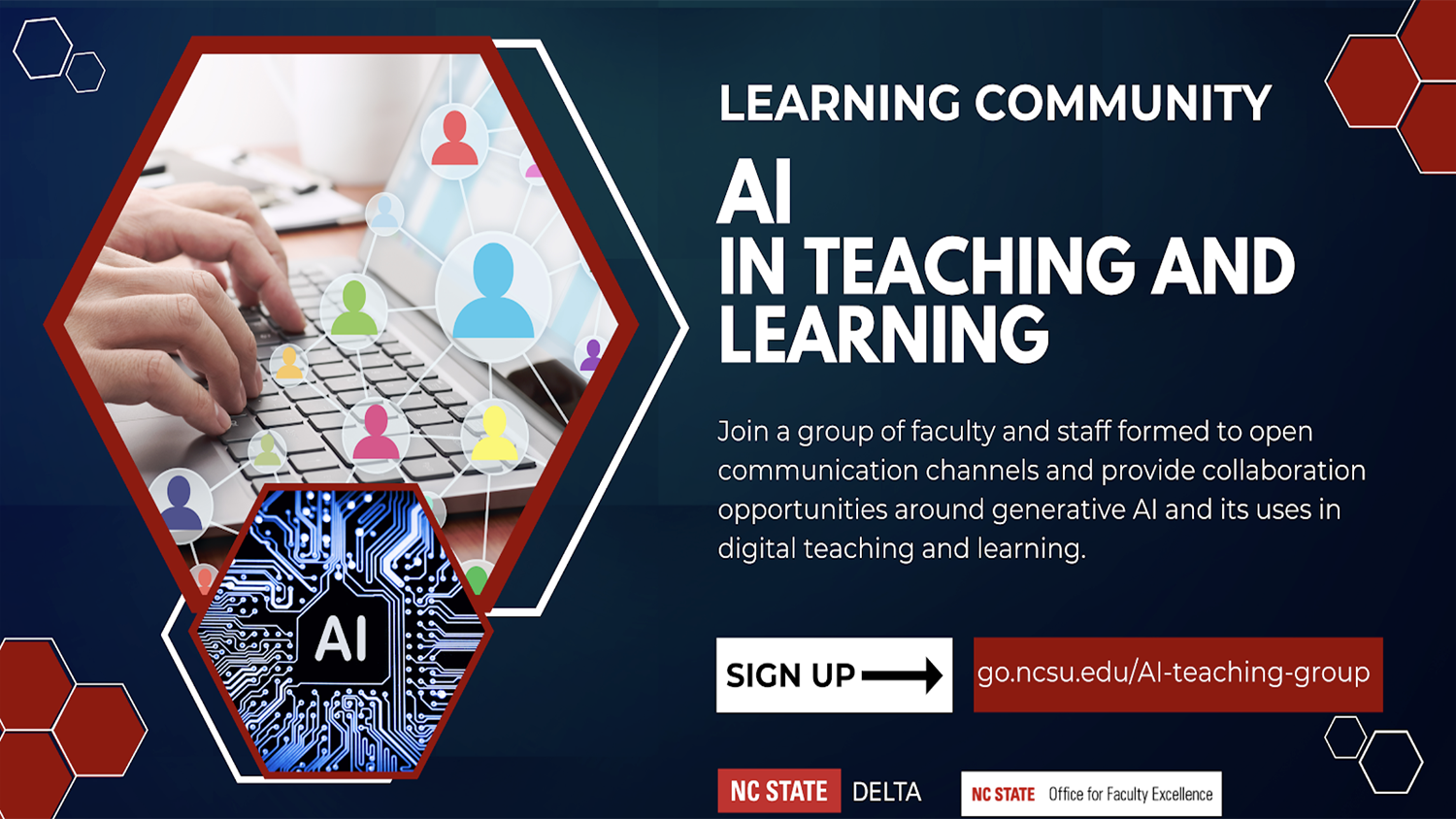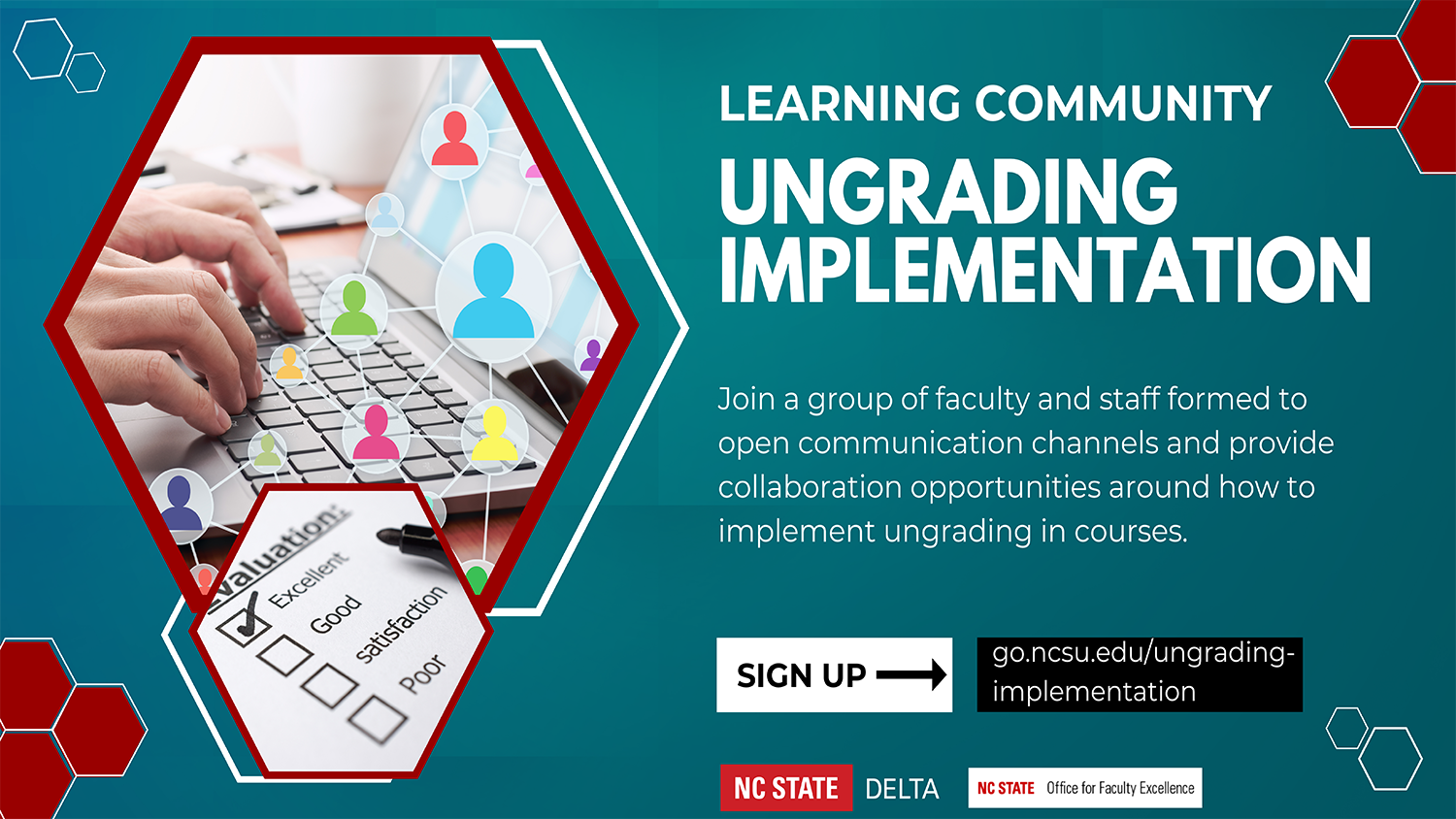WolfWare Outreach Brings Science Home
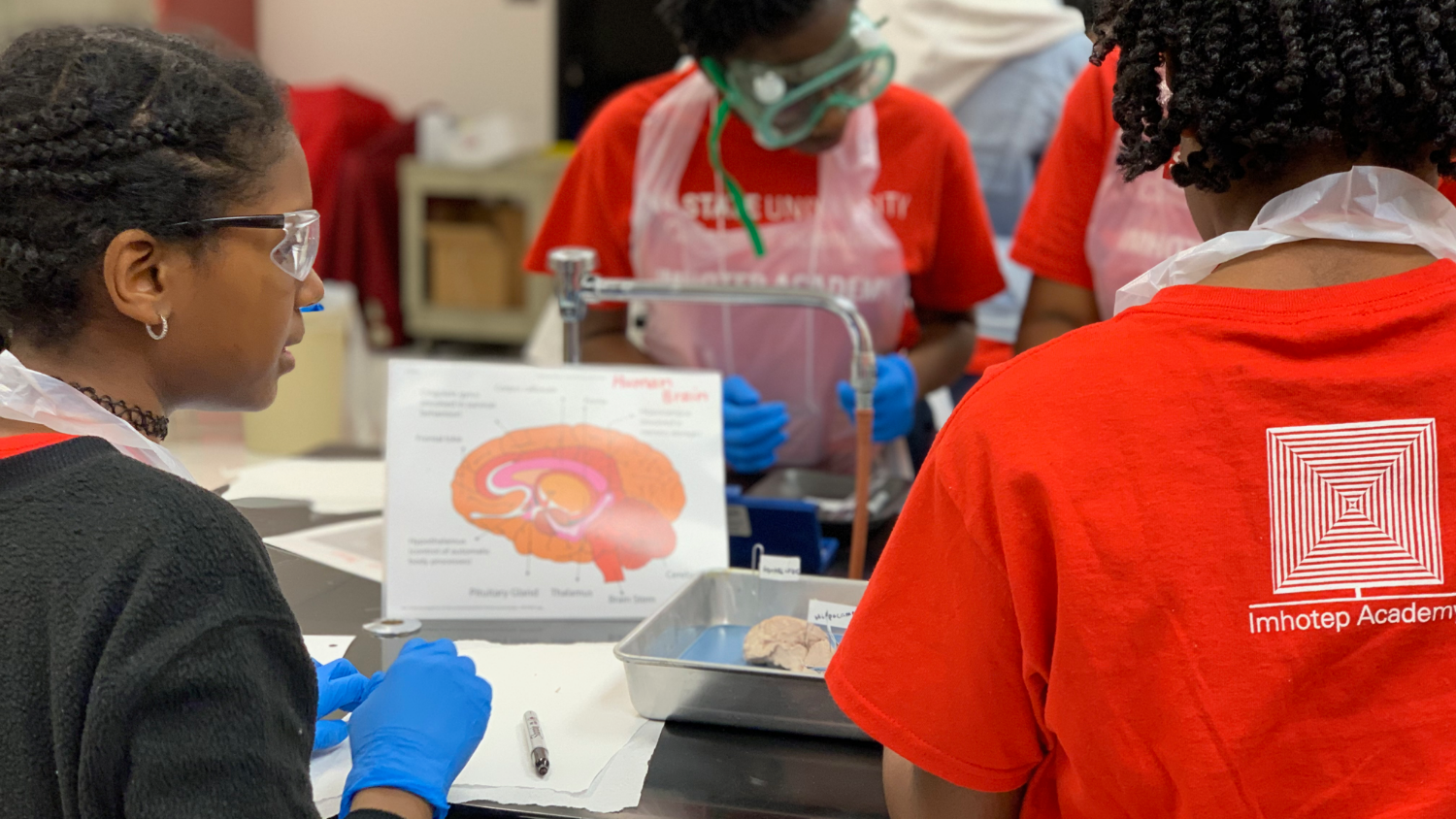
For nearly 30 years, The Science House‘s Imhotep and Kyran Anderson Academy has worked to bring pre-college science, technology, engineering and mathematics (STEM) enrichment programs into the lives of elementary and middle school students from historically underserved or underrepresented backgrounds across North Carolina.
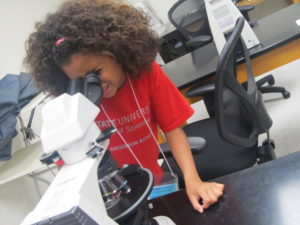
Students in the programs traditionally gather in-person to learn about hot topics in STEM made accessible for a young audience. COVID-19 not only changed all of that but presented an opportunity for The Science House to increase access to STEM education and prepare students to succeed in the digital learning environment.
“The onset of the COVID-19 pandemic shifted the program delivery and implementation model from its traditional in-person format to a remote format designed to address the lack of STEM enrichment program opportunities for students in the digital space. This drastic shift to online learning highlighted the need for immediate, immersive STEM programming across the state,” says Pamela Gilchrist, the director of Imhotep and Kyran Anderson Academy.
As K-12 schools face the challenge of hybrid learning, early reports suggest mixed results in maintaining academic progress across subjects and grade levels, particularly for vulnerable students, with noticeable declines in mathematics in grades five and six (NWEA, 2020). The Imhotep and Kyran Anderson Academy programs offer one solution to closing this gap by offering quality, affordable supplemental STEM learning experiences.
Here to help them close the gap is WolfWare Outreach, DELTA’s enterprise-level learning management system to develop non-credit, fee-based online courses. WolfWare Outreach has been used by a variety of clients to develop training programs and professional development courses, but DELTA’s collaboration with The Science House marks the first time the platform has been employed for an audience of K-12 students. Fortunately, WolfWare Outreach’s capabilities and The Science House’s programs made a perfect match.
Mission and Method

The Science House delivers programs covering a wide range of STEM topics to K-12 students ––from forensics, gaming and urban planning to epidemiology, biomedical engineering and genetics. These programs are offered synchronously throughout the year, reaching nearly 150 students in rural and urban counties of North Carolina. Gilchrist is supported by Alonzo B. Alexander, a TSH-STEM Education Graduate Research Student, K-12 public school teachers, university scientists and researchers and a diverse mix of graduate and undergraduate students at NC State.
“The programs are shaped around a case or problem, and students work to complete different hands-on activities to solve a problem,” says Gilchrist.
Whether it’s a mysterious genetic disorder, a case of meningitis or the need for an innovative prosthetic device, the cases address real-world challenges and guide students in developing scientific knowledge and problem-solving skills to find solutions. In addition to at-home DNA extraction, fingerprinting and chromatography, The Science House recently created an opportunity for students to travel to NC State’s Centennial Campus and safely gather evidence for a staged bank heist.
“We created a 3D interactive forensic case that was staged at our [physical] unit, so when the students logged in online, they had an opportunity to go to Lake Raleigh, the Golden Bank Heist site, and pick up evidence from the river,” Gilchrist shares.
These activities serve several purposes. Not only do they immerse students in the wonders of science and provide enriching learning experiences, but they also help students build their self-confidence and prepare them to succeed amidst the challenges and learning opportunities they could encounter later on in life at college.
A New Experiment
When The Science House decided to offer their programs online in the wake of COVID-19, it was evident to Gilchrist and her team that an effective learning management system (LMS) was required. After completing training offered through DELTA, the program gained access to a WolfWare Outreach account.
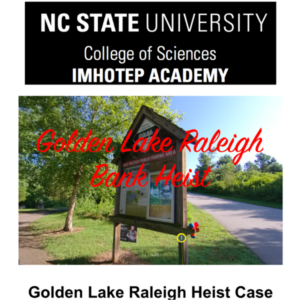
WolfWare Outreach provided a number of features that made it the best choice for The Science House’s program delivery. In addition to serving as a repository to house program artifacts and supplemental materials that can be saved, replicated and revised for future use, the platform also offered an assortment of communication tools to increase student-to-student interaction and staff engagement with live chats, forums and emails.
“We were also looking for ways to educate teachers about the utility of online tools for teaching students,” says Gilchrist. “You can harness online environments to engage students in learning about STEM and equip them for the future by developing technical skills that are transferable across all disciplines and fields.”
WolfWare Outreach also acts as a secure location for educators and students to interact with one another while adhering to University Regulation 01.25.18 –– Programs that Involve the Participation of Minors, which seeks to provide an optimal learning environment for students below the age of 18 to engage securely without fear of personal details being accessed improperly. WolfWare Outreach is an accountable system for staff as well, allowing them to document interactions and demonstrate that they are solely focused on the mission at hand.
“There is a pre-orientation before the program with the students and the parents to let them know about the environment, how this meets minor policies, what our expectations are for the students and what our expectations are for the parents,” Gilchrist explains. “The parents were really amazed at the fact that we were able to create engaging science programs remotely.”
The aspects of WolfWare Outreach that have garnered the best feedback from students are the tools for assessing and awarding their engagement in the program with personalized badges. Gilchrist notes that students have shared how much they love to check their virtual backpacks in their WolfWare Outreach accounts to see their badges, and it has been a good method for increasing participant engagement while enhancing the learning process in a digital space that, for some students, can cause frustration.
“We look for different ways to encourage the kids’ participation in the program, and we know that coming into a space that’s different from what they’re accustomed to can be overwhelming, so that is something we confront head-on with the students and parents to support the student and [help them] navigate through any anxiety and stress,” Gilchrist says.
For Gilchrist and The Science House, the move to digital learning feels like a natural step in the right direction.
“I think technology has a way of keeping us humble and it reminds us that there’s always more to learn, and more we can do, and more ways we can interrogate learning communication and engagement among people from different spaces, different backgrounds and different walks of life in a meaningful way.”
Forward Momentum
Gilchrist, her team and their students have enjoyed using WolfWare Outreach. While they have encountered learning curves, such as acclimating the students to the portal and familiarizing educators with all the tools the LMS provides as they create and integrate program material, WolfWare Outreach has proven to be a flexible, scalable environment suited to the needs of the current educational landscape.
The biggest challenge Gilchrist faced was setting up the course. She recommends others who use WolfWare Outreach commit to intentional work upfront to define learning objectives and methods to engage students. It’s also important to make sure students have an easy and direct path to access program materials, minimizing unnecessary clicks and keeping key information in one central location. DELTA provides the support of instructional designers and technologists to help achieve this goal, which Gilchrist says has been helpful.
“WolfWare Outreach provided a space for us to house all of our materials for all of our classes, and this was a way of keeping it organized and accessible for students and staff to access and use. It also allowed us to harness technology like the Google suite.”
The Science House plans to continue to use WolfWare Outreach in the near future. The summer 2021 program offering will introduce elementary students to the wonder of chemistry through an interactive 3D Forensic Mysteries case. Middle-grade students will explore the brain in a Neuroscience session and the world of biomedical engineering in a Prosthetics and Engineering Design session.
Gilchrist looks forward to these programs serving students across North Carolina and beyond.
“From the mountains to the sea to the Piedmont to the foothills, we covered the state of North Carolina when we were able to do this program. This year, we were able to connect some students from out-of-state for the program. We have always wanted to take the program out to students across the state, but it’s hard to do that. [WolfWare Outreach] allows students from anywhere within the state to connect and learn about STEM, and learn about the university, and have some point of contact remotely in their home. I always thank the parents. I say ‘Thank you for allowing us to bring science to your home from our home.'”
